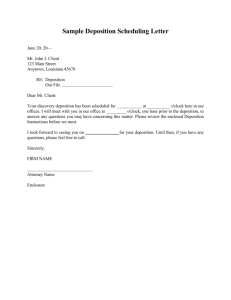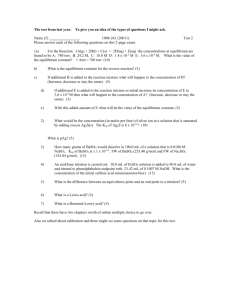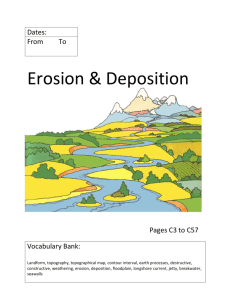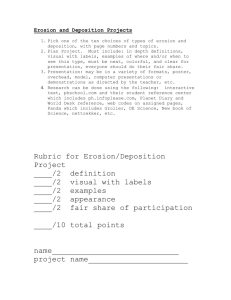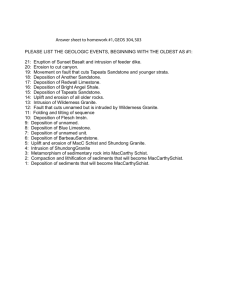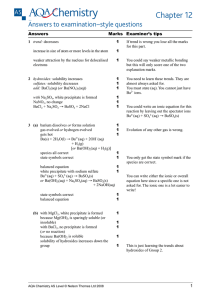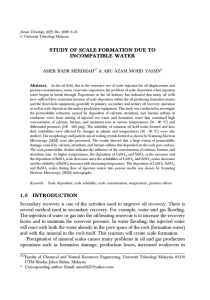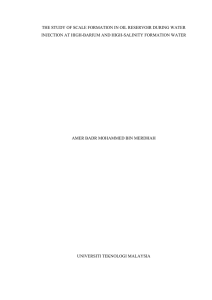ABSTRACT: Scale formation in surface and subsurface oil and gas production...
advertisement
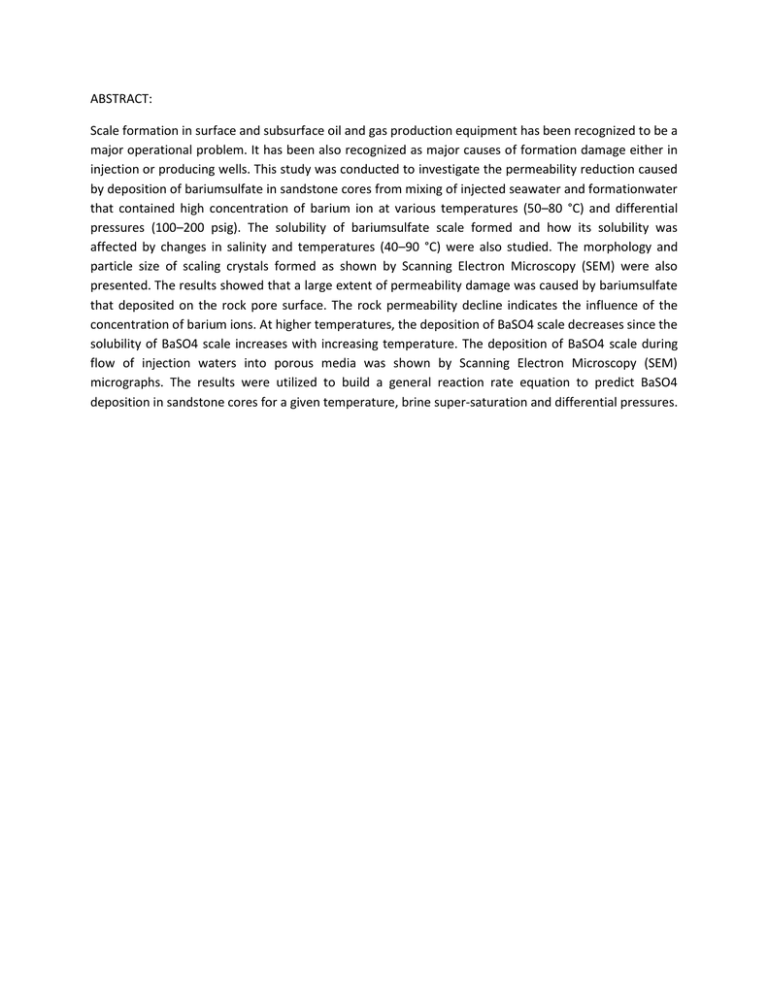
ABSTRACT: Scale formation in surface and subsurface oil and gas production equipment has been recognized to be a major operational problem. It has been also recognized as major causes of formation damage either in injection or producing wells. This study was conducted to investigate the permeability reduction caused by deposition of bariumsulfate in sandstone cores from mixing of injected seawater and formationwater that contained high concentration of barium ion at various temperatures (50–80 °C) and differential pressures (100–200 psig). The solubility of bariumsulfate scale formed and how its solubility was affected by changes in salinity and temperatures (40–90 °C) were also studied. The morphology and particle size of scaling crystals formed as shown by Scanning Electron Microscopy (SEM) were also presented. The results showed that a large extent of permeability damage was caused by bariumsulfate that deposited on the rock pore surface. The rock permeability decline indicates the influence of the concentration of barium ions. At higher temperatures, the deposition of BaSO4 scale decreases since the solubility of BaSO4 scale increases with increasing temperature. The deposition of BaSO4 scale during flow of injection waters into porous media was shown by Scanning Electron Microscopy (SEM) micrographs. The results were utilized to build a general reaction rate equation to predict BaSO4 deposition in sandstone cores for a given temperature, brine super-saturation and differential pressures.
